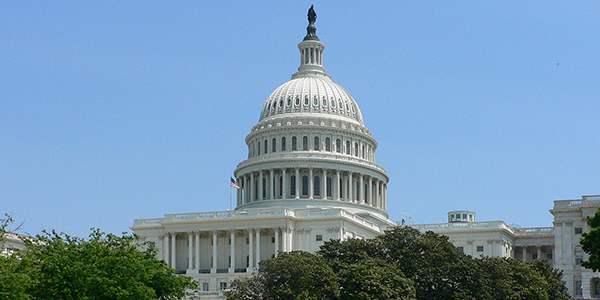President Biden’s early directives on environmental justice do not go far enough, Kerene Tayloe, director of legislative affairs for WE ACT for Environmental Justice, told a U.S. House of Representatives subcommittee Tuesday.
Rather than just receiving a update from Biden, Tayloe said, President Bill Clinton’s 27-year-old Executive Order 12898 should be codified.
“Depending on the president in office at the time, [EO 12898] doesn’t always get the attention and federal support that we need, so in addition to updating and strengthening the executive order, we also think it’s critical to codify that order,” she told members of the House Energy and Commerce Subcommittee on Environment and Climate Change.
Biden signed an executive order on Jan. 27 that established the Environmental Justice Interagency Council and Environmental Justice Advisory Council within the White House. He directed those bodies to advise the administration on ways to update EO 12898.
The original purpose of Clinton’s order was to bring attention to how federal actions affect the environmental and human health of minority and low-income communities. That order also established an Interagency Working Group, but Tayloe said the order could be strengthened by ensuring there is a focus on environmental justice across government agencies.
Rep. Raul Ruiz (D-Calif.) said during Tuesday’s hearing that he will reintroduce legislation that would, among other things, codify parts of EO 12898. Called the Environmental Justice Act, the bill was introduced last year and passed the House as part of the Clean Economy and Jobs Innovation Act.
“I’m hoping it will get signed into law this Congress because codifying the order will strengthen compliance and protection,” Ruiz said.
Justice40
In her testimony, Tayloe outlined ways that communities of color can be part of the work the Biden administration has initiated on climate and environmental justice.
She applauded Biden’s Justice40 initiative, which seeks to deliver 40% of the benefits of federal climate investments to disadvantaged communities, but she also urged inclusiveness in that process.
“I think it would be critical to have very strong engagement with communities for us to articulate how we would like to see that 40% [realized],” she said, adding that workforce development and transportation are among the ways WE ACT might like to see funds allocated.
Tayloe said prioritizing communities of color for Justice40 recognizes that those communities have been disproportionately affected by climate change.
“While we all are experiencing extreme heat and storms, unfortunately our communities get the brunt of that, and unfortunately there hasn’t always been the same level of support in helping [those communities] recover from these major climate experiences,” she said.
She said Justice40 needs to ensure that environmental justice organizations “be at the table.”
Working Group
Federal action on climate change, Tayloe said, also would benefit from a climate justice working group similar to one established in New York state under the Climate Leadership and Community Protection Act (CLCPA).
The New York working group includes community stakeholders, such as WE ACT, and government experts to guide clean energy investment.
“We’re really proud of the work that we did around CLCPA to get that passed,” she said. “For New York to lead the country in creation of such important climate policy shows what we can also duplicate it at the federal level, and having a working group for communities to be a part of is critical.”





